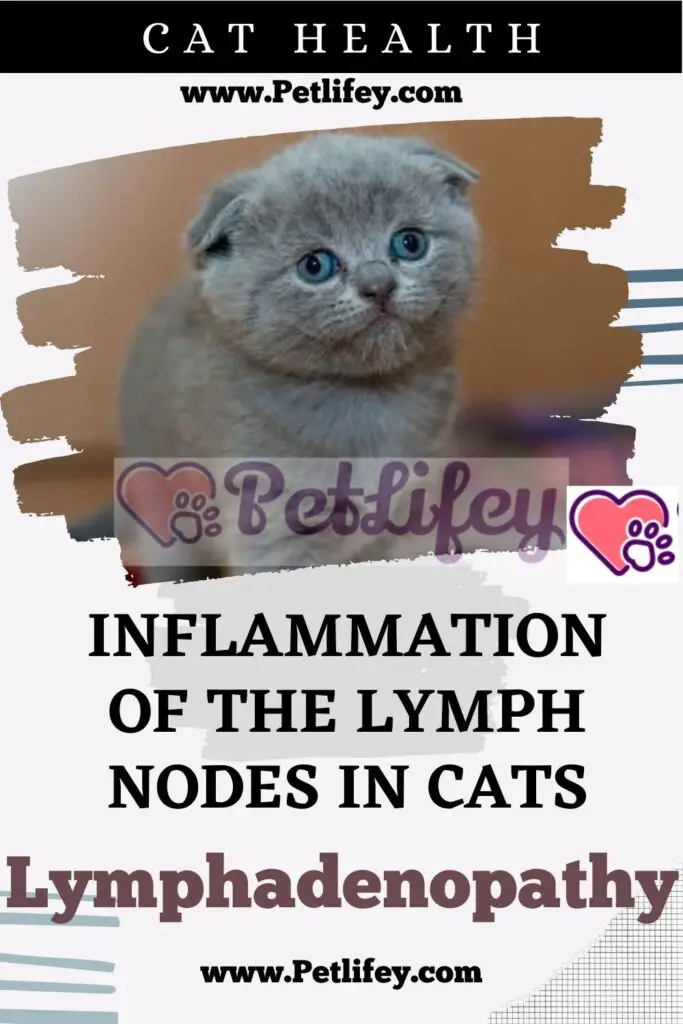
Lymphadenopathy in cats is inflammation of the animal’s lymph nodes. Here are the causes, symptoms and the right therapy.
Lymph nodes are very important for the functioning of the cat‘s immune system, as they act as filters for the blood and are “storage places” for white blood cells.
They are also the first to indicate a possible tissue disease of the cat’s organism. For this reason, when the latter become inflamed, the lymph nodes in the inflamed area also swell and become inflamed.
In fact, when there is an increase in white blood cells, due to an infection in progress, the lymph nodes swell. But let’s see together what are the causes of this swelling and inflammation of the cat’s lymph nodes and what are the symptoms of lymphadenopathy.
Inflammation of the lymph nodes: symptoms and causes

Lymph nodes are found throughout the feline‘s body, and by the time they swell, they can be detected by touch. You may usually notice an enlarged lymph node under the cat’s jaw or around the shoulder.
You may also notice swelling in the back of the leg or near the leg joint (related to the armpit). Lymphadenopathy usually has no specific symptoms, apart from swollen lymph nodes.
But it is possible to notice, for example in the case in which the swollen lymph nodes are located in the vicinity of the feline’s groin, difficulty for the cat to defecate. Additionally, you may also notice:
- The cat is not hungry
- The cat has nausea
- The cat regurgitates
In case the swelling of the lymph nodes is severe enough, the cat may have difficulty breathing and eating.
Causes
The main causes of feline lymph nodes swell are:
- Bacterial infections
- Feline immunodeficiency (FIV)
- Feline leukemia (FELV)
- Inflammations
- Allergies
- Tumors
Diagnosis and treatment
If you have swollen lymph nodes, your vet will perform a full examination on your cat. The specialist will carry out the following tests:
- Urine analysis
- Blood exam completed
- Biochemical profile
- Feline leukemia virus test
- Feline immunodeficiency vision test
A possible lymph node biopsy, an X- ray and ultrasound will also be done to evaluate the situation of the lymph nodes and highlight any tumors.
The treatment and medications prescribed by the vet, such as antibiotics, depend exclusively on the cause that led to the enlarged lymph nodes in the cat.






